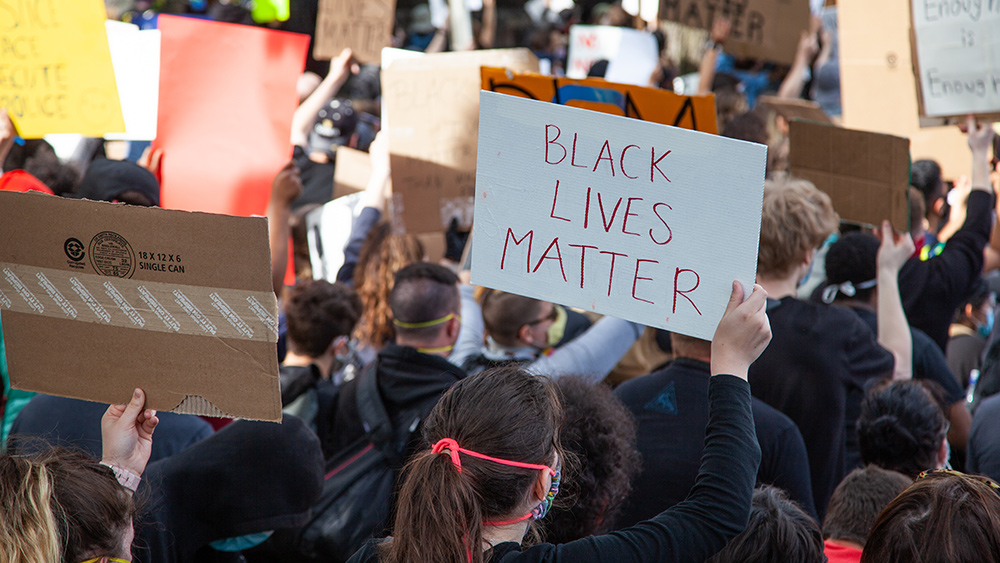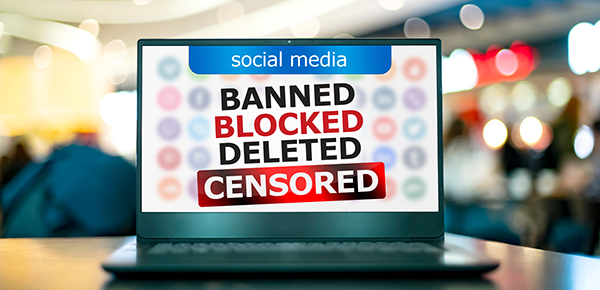Supreme Court allows Idaho to enforce ban on sex change procedures for transgender youths
04/16/2024 / By Laura Harris

The United States Supreme Court has issued an emergency order allowing Idaho to resume its enforcement of a state ban on sex-change-related procedures for minors after initially being blocked by a lower court.
Idaho’s Vulnerable Child Protection Act (VCPA), which was supposed to take effect on Jan. 1, faced lawsuits from two transgender-identifying girls, aged 15 and 16, along with their parents. They argued that the law would deny the teenagers medically necessary care and infringe upon their rights.
The VCPA, which targets medical interventions for adolescents with gender dysphoria, prohibits healthcare professionals from providing treatments such as puberty blockers, hormones and surgical procedures like mastectomies that help make the child’s gender expression “inconsistent with the child’s biological sex.” Violators of the law could face up to 10 years in prison, but it does not prohibit such treatments for other medical conditions, provided they align with a minor’s biological sex.
U.S. Senior District Judge Lynn Winmill of the U.S. District Court for the District of Idaho sided with the transgender teenagers and their families, arguing that parents have the fundamental right to make decisions for their children, including access to gender-affirming treatments. In turn, Winmill ruled that the VCPA violates the 14th Amendment of the Constitution, which guarantees equal protection and due process after two families of the transgender girls receiving hormone therapy sued the state in December.
Idaho Attorney General Raul Labrador denounced the ruling as keeping children in Idaho vulnerable to the predations of transgender-supporting healthcare practitioners.
“Every day Idaho’s law remains enjoined exposes vulnerable children to risky and dangerous medical procedures and infringes Idaho’s sovereign power to enforce its democratically enacted law,” Labrador said. “These procedures have lifelong, irreversible consequences, with more and more minors voicing their regret for taking this path.”
Labrador appealed the ruling, and the Supreme Court granted his request to narrow the lower court’s preliminary injunction against the VCPA. The Supreme Court permitted the state to enforce the ban against everyone except for the two transgender teenagers who initiated the lawsuit. They retain access to gender-affirming treatments.
“The state has a duty to protect and support all children, and that’s why I’m proud to defend Idaho’s law that ensures children are not subjected to these life-altering drugs and procedures,” Labrador said. “Those suffering gender dysphoria deserve love, support, and medical care rooted in biological reality. Denying the basic truth that boys and girls are biologically different hurts our kids. No one has the right to harm children, and, thankfully, we as the state have the power – and duty – to protect them.”
Supreme Court Justices divided over the scope of judicial injunctions
The Supreme Court justices found themselves at odds over the power of individual judges to block laws through injunctions, particularly when only a limited number of plaintiffs are involved. The crux of the debate centered around the concept of universal injunctions, which allow a single judge to halt law enforcement nationwide.
For instance, from the point of view of Associate Justice Neil Gorsuch, the use of universal injunctions transforms localized disputes into sweeping referendums on the entirety of its provisions.
“In recent years, certain district courts across the country have not contented themselves with issuing equitable orders that redress the injuries of the plaintiffs before them, but have sought instead to govern an entire State or even the whole Nation from their courtrooms,” he wrote.
However, Associate Justice Ketanji Jackson acknowledged the complexity of the issue and described universal injunctions as “contested and difficult.” Despite this acknowledgment, she opted not to address the matter in the current case’s emergency context. Instead, she advocated for deference to lower courts and appellate review.
“This Court is not compelled to rise and respond every time an applicant rushes to us with an alleged emergency, and it is especially important for us to refrain from doing so in novel, highly charged, and unsettled circumstances,” Jackson said.
The disagreement extended to the role of the Supreme Court in handling emergency applications. Jackson argued for restraint, suggesting that the Supreme Court should not feel compelled to intervene in every alleged emergency. However, Gorsuch and Kavanaugh expressed concerns about presuming deference to courts of appeal.
Head over to Gender.news for more stories about the pushback against transgenderism.
Watch the video below that talks about protecting the youth from transgenderism’s false ideology.
This video is from the Flyover Conservatives channel on Brighteon.com.
More related stories:
New Hampshire expected to BAN transgender surgeries for minors.
Montana CPS abducts teen from family after parents refuse to go along with LGBT “sex change.”
Ohio House of Representatives upholds trans surgery ban for minors, overrides DeWine’s veto.
Sources include:
Submit a correction >>
Tagged Under:
ban, big government, Child abuse, child mutilation, culture wars, gay mafia, gender, gender affirming care, gender confused, Gender Dysphoria, gender reassignment, Idaho, left cult, medical violence, puberty blockers, sex change, Transgender surgery, transgenderism, transhumanism
This article may contain statements that reflect the opinion of the author
RECENT NEWS & ARTICLES
COPYRIGHT © 2018 BANNED.NEWS
All content posted on this site is protected under Free Speech. Banned.news is not responsible for content written by contributing authors. The information on this site is provided for educational and entertainment purposes only. It is not intended as a substitute for professional advice of any kind. Banned.news assumes no responsibility for the use or misuse of this material. All trademarks, registered trademarks and service marks mentioned on this site are the property of their respective owners.



















